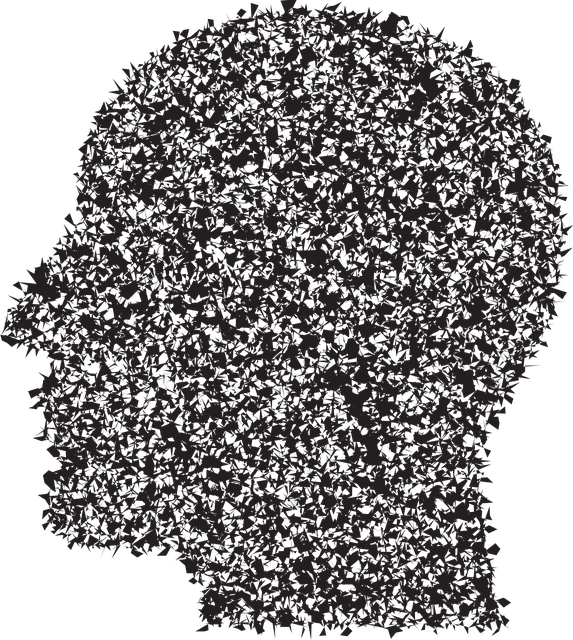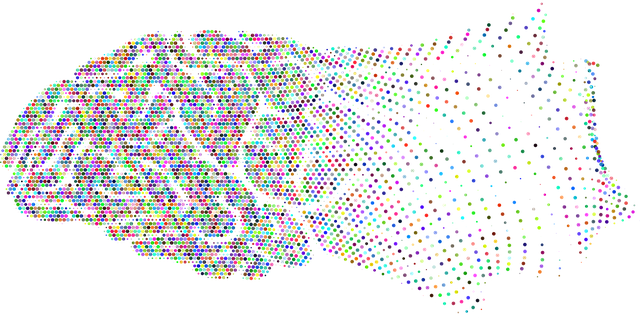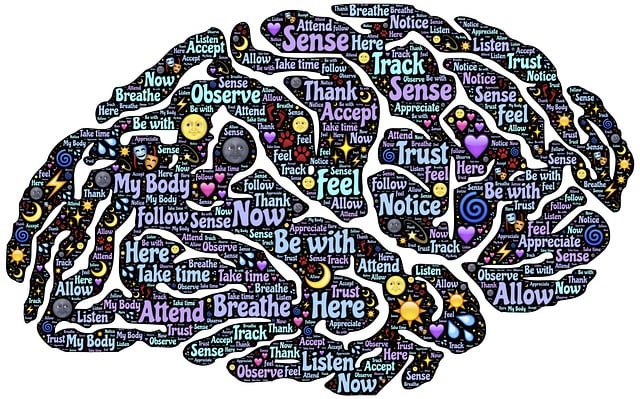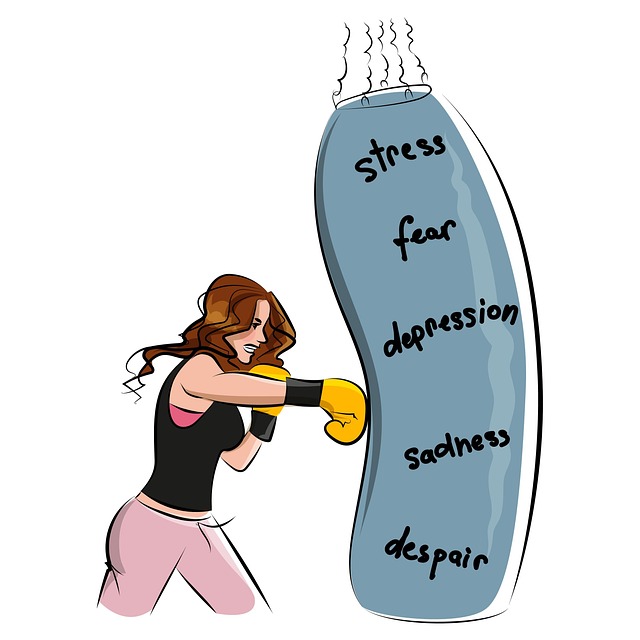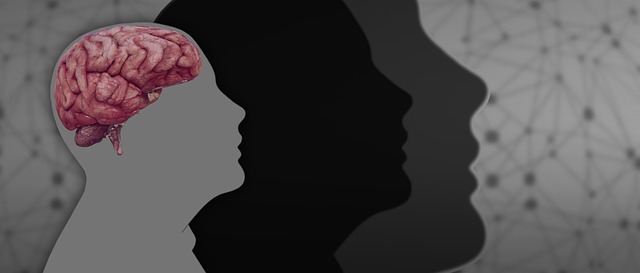Anxiety, a common but overwhelming condition, manifests through physical, mental, and emotional symptoms, often linked to ADD/ADHD. Littleton offers specialized ADD-ADHD therapy addressing anxiety, combining Cognitive Behavioral Therapy (CBT), mindfulness, meditation, exercise, and diet for effective management. This holistic approach, including conflict resolution, reduces stigma and promotes accessible treatment, empowering individuals with coping strategies for improved mental health and well-being.
Anxiety is a common yet overwhelming condition affecting individuals from all walks of life. In this comprehensive guide, we explore effective anxiety management techniques to help you reclaim control over your mental well-being. From understanding the signs and symptoms to powerful therapies like Cognitive Behavioral Therapy (CBT) and mindfulness practices, we cover it all. Additionally, discover how lifestyle changes and professional support, including Littleton ADD-ADHD therapy, can significantly reduce anxiety and enhance your quality of life.
- Understanding Anxiety: Recognizing the Signs and Symptoms
- Cognitive Behavioral Therapy (CBT): A Powerful Tool for Anxiety Management
- Mindfulness and Meditation Techniques to Calm the Mind
- Lifestyle Changes for Reducing Anxiety: Exercise, Diet, and Sleep
- Professional Support: The Role of ADD-ADHD Therapy in Littleton
Understanding Anxiety: Recognizing the Signs and Symptoms

Anxiety is a common experience, but when it becomes overwhelming, it can significantly impact daily life. Understanding anxiety involves recognizing its various signs and symptoms, which manifest differently in each individual. Physical symptoms like increased heart rate, rapid breathing, and muscle tension are often accompanied by mental and emotional indicators such as worry, fear, restlessness, and difficulty concentrating. These signs can vary from subtle to severe and may arise due to specific triggers or underlying mental health conditions, including ADD-ADHD. Recognizing these indicators is the first step towards managing anxiety effectively.
In Littleton, ADD-ADHD Therapy has proven valuable in addressing anxiety disorders, offering tailored strategies to help individuals cope. By understanding the unique presentation of anxiety and its potential ties to other mental health issues, such as ADD-ADHD, therapy provides a comprehensive approach to stigma reduction efforts. Mental Health Policy Analysis and Advocacy play a crucial role in ensuring accessible treatment options, while Conflict Resolution Techniques can be adapted to manage anxiety-related conflicts or misunderstandings within therapeutic settings.
Cognitive Behavioral Therapy (CBT): A Powerful Tool for Anxiety Management

Cognitive Behavioral Therapy (CBT) has emerged as a powerful tool in the arsenal for anxiety management. This evidence-based approach focuses on identifying and changing negative thought patterns and behaviors that contribute to anxiety disorders. By working with a qualified therapist, individuals can learn effective coping strategies to manage their symptoms and improve overall well-being. CBT helps to unravel the intricate web of anxious thoughts, providing practical tools to challenge and reframe them.
In the context of Littleton ADD-ADHD Therapy, CBT integrates empathy building strategies to foster emotional healing processes. Through this therapeutic lens, individuals gain insights into their unique triggers and develop personalized techniques to navigate anxiety-provoking situations. By combining cognitive restructuring with effective communication, CBT empowers clients to take control of their mental health, fostering greater awareness and resilience in their daily lives.
Mindfulness and Meditation Techniques to Calm the Mind

In today’s fast-paced world, managing anxiety has become a priority for many seeking Littleton ADD-ADHD Therapy. Mindfulness and meditation techniques offer powerful tools to calm the mind and cultivate a sense of inner peace. These practices encourage individuals to focus on the present moment, observing their thoughts and feelings without judgment. By cultivating mindfulness, one can learn to detach from anxious thoughts, reducing their intensity and impact.
Regular meditation sessions can help individuals develop mental wellness journaling exercise guidance, allowing them to track their progress and identify triggers. This practice enables individuals to gain valuable insights into their anxiety patterns, making it easier to navigate challenging situations with enhanced conflict resolution techniques. Public awareness campaigns development can further support these efforts by spreading education and resources, ensuring that more people have access to effective anxiety management strategies.
Lifestyle Changes for Reducing Anxiety: Exercise, Diet, and Sleep

Regular exercise is a powerful tool for managing anxiety. Physical activity stimulates the release of endorphins, often referred to as ‘feel-good’ hormones, which can help alleviate symptoms of stress and anxiety. Activities like walking, yoga, or even dancing can provide an outlet for tension and promote mental clarity. In Littleton ADD-ADHD Therapy sessions, professionals emphasize the importance of incorporating movement into daily routines as a form of non-pharmacological depression prevention.
Diet also plays a significant role in maintaining mental health. Certain foods contain nutrients that support brain function and mood regulation. For example, omega-3 fatty acids found in fish have been linked to reduced anxiety levels. Similarly, a balanced diet rich in vitamins and minerals can contribute to overall well-being. Mind over matter principles encourage individuals to be mindful of their dietary choices as a means of gaining control over anxiety relief, alongside other proven therapy techniques.
Professional Support: The Role of ADD-ADHD Therapy in Littleton

In Littleton, Littleton ADD-ADHD Therapy plays a pivotal role in addressing anxiety management. This specialized therapy is designed to help individuals navigate and overcome the challenges posed by Attention Deficit Disorder (ADD) or Attention Deficit Hyperactivity Disorder (ADHD). Through evidence-based practices tailored to each person’s unique needs, therapists facilitate anxiety relief while teaching effective communication strategies and mood management techniques. The supportive environment encourages clients to develop coping mechanisms that enhance their overall well-being and quality of life in Littleton and beyond.
Anxiety management is a holistic process that involves understanding your condition, adopting effective strategies, and seeking professional support when needed. By combining Cognitive Behavioral Therapy, mindfulness practices, lifestyle modifications, and specialized ADD-ADHD therapy in Littleton, individuals can gain significant control over their anxiety. Remember, recognizing the signs early and taking proactive steps can lead to improved well-being and a calmer, more balanced life.



